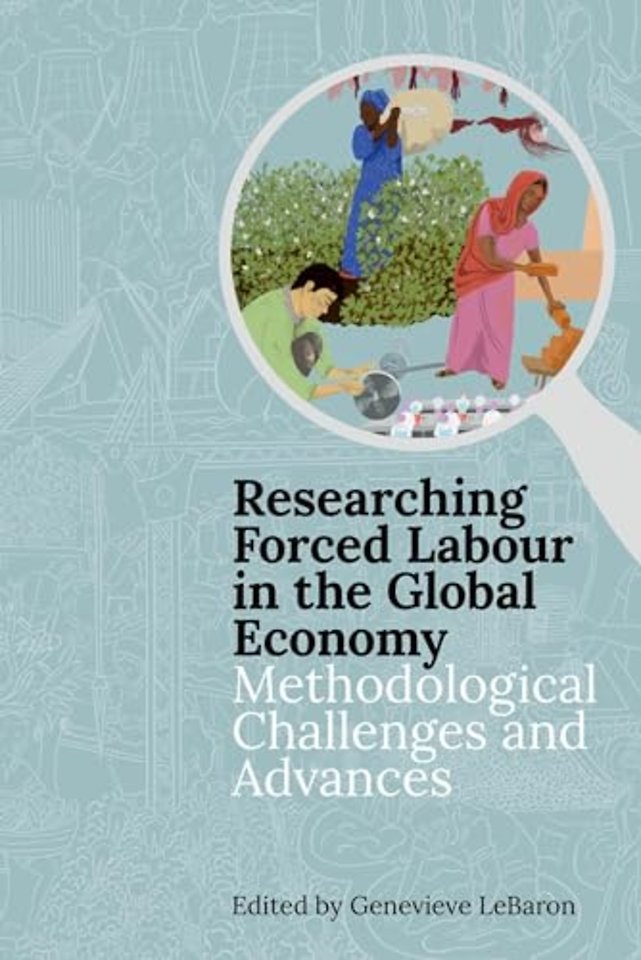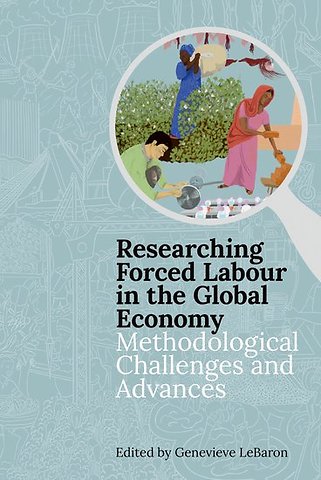



Genevieve LeBaron is Professor of Politics and Co-Director of Sheffield Political Economy Research Institute (SPERI) at the University of Sheffield.
Meer over Genevieve LeBaronResearching Forced Labour in the Global Economy
Methodological Challenges and Advances
Gebonden Engels 2018 1e druk 9780197266472Samenvatting
By most accounts, forced labour, human trafficking, and modern slavery are thriving in the global economy. Recent media reports — including the discovery of widespread trafficking in Thailand's shrimp industry, forced labour in global tea and cocoa supply chains, and the devastating deaths of workers constructing stadiums for Qatar's World Cup— have brought once hidden exploitation into the mainstream spotlight. As public concern about forced labour has escalated, governments around the world have begun to enact legislation to combat it in global production.
Yet, in spite of soaring media and policy attention, reliable research on the business of forced labour remains difficult to come by. Forced labour is notoriously challenging to investigate, given that it is illegal, and powerful corporations and governments are reluctant to grant academics access to their workers and supply chains. Given the risk associated with researching the business of forced labour, until very recently, few scholars even attempted to collect hard or systematic data. Instead, academics have often had little choice but to rely on poor quality second-hand data, frequently generated by activists and businesses with vested interests in portraying the problem in a certain light. As a result, the evidence base on contemporary forced labour is both dangerously thin and riddled with bias.
'Researching Forced Labour in the Global Economy' gathers an interdisciplinary group of leading scholars to tackle this problem. It provides the first, comprehensive, scholarly account of forced labour's role in the contemporary global economy and reflections on the methodologies used to generate this research.
Specificaties
Lezersrecensies
Inhoudsopgave
Acknowledgements
1: Introduction, Genevieve LeBaron
Part I: Surveying the Gaps
2: Methodological Challenges in the Business of Forced Labour, Andrew Crane & Genevieve LeBaron
3: The Politics of Numbers: Beyond Methodological Challenges in Research on Forced Labour, Nicola Phillips
4: The Politics of Forced Labour Research: NGOs, Activists, and States, Joel Quirk
5: What Is Forced Labour? A Practical Guide for Humanities and Social Science Research, Jean Allain
6: Confronting Bias in Ngo Research on Modern Slavery, Sam Okyere
Part II: Frontiers of Forced Labour Research and Methods
7: Why (and How) We Need To Talk To 'The Victims', Neil Howard
8: Researching Unfree Student Labour in Apple's Supply Chain, Jenny Chan
9: Transparent Companies? Legal Research Strategies to Understand Forced Labour in Global Supply Chains, Andreas Rühmkorf
10: The Role of Discourse Analysis in Researching Severe Labour Exploitation, Robert Caruana
11: Archival Trouble: Researching Sex Trafficking In Early Twentieth-Century America, Jessica Pliley
Anderen die dit boek kochten, kochten ook
Rubrieken
- advisering
- algemeen management
- coaching en trainen
- communicatie en media
- economie
- financieel management
- inkoop en logistiek
- internet en social media
- it-management / ict
- juridisch
- leiderschap
- marketing
- mens en maatschappij
- non-profit
- ondernemen
- organisatiekunde
- personal finance
- personeelsmanagement
- persoonlijke effectiviteit
- projectmanagement
- psychologie
- reclame en verkoop
- strategisch management
- verandermanagement
- werk en loopbaan





